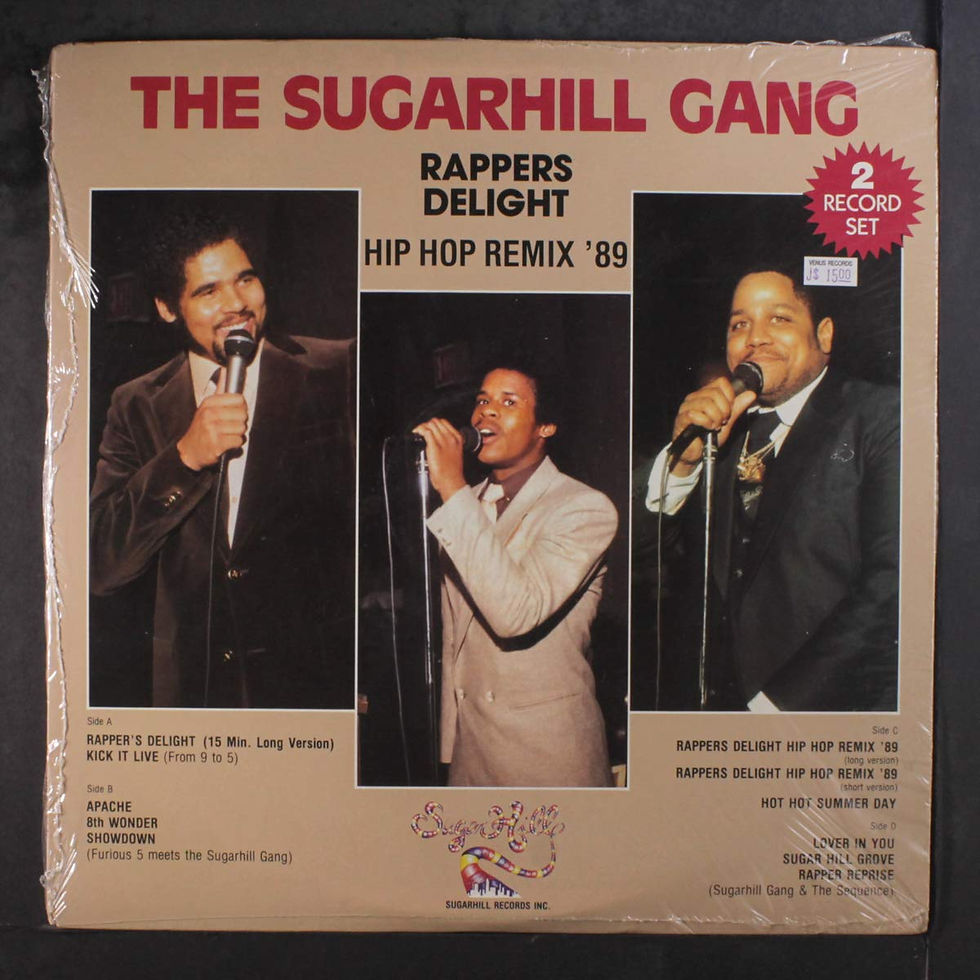Kaiya’s Korner: Black Women Pioneers in Music
- Kaiya Nyasha
- Feb 25, 2022
- 3 min read
Happy Black History Month and welcome to Kaiya’s Korner! Black History Month is an annual period of celebration dedicated to recognizing the central role of African Americans in U.S. history. This month also serves as a time to reflect, to inform, and even clear up misinformation from history’s past that omits the contributions of Black people.
Girls Make Beats has celebrated Black History month through a series on social media, opening up a dialogue about Black heroes who have inspired us or have been historically overlooked. Then continuing the dialogue on our GMB Podcast Episode 15, our girls celebrated Black executives that changed the game in music– figures like Berry Gordon, Ethiopia Habtemariam, and Diddy among others.
As Black History Month 2022 reaches its close and Women’s History Month nears, I have chosen to reflect specifically on the contributions of Black women pioneers in music. Notoriously throughout U.S. history, Black people have existed at the mercy of oppressive leaders who denied them their human rights. Women were also stripped of their voice socially and politically until the turn of the 20th century. In the intersection of blackness and womanhood, you will find hundreds of faceless Black women who were catalysts behind several cultural movements. Black History Month is a chance to reclaim the voice of those women who were discredited and overlooked.
One of the three women I am highlighting in this blog is none other than the Godmother of Rock and Roll, Sister Rosetta Tharpe. I have been a student of music my whole life and I didn’t learn of Sister Rosetta Tharpe until the end of last year.

Born March 20th,1915 in Arkansas, Tharpe grew up belting in the church and shredding on the guitar marrying the worlds of gospel and secular music. Several argue she is still largely disregarded especially after pioneering rock & roll in 1938 with the release of her first single “Rock Me”.

It wasn’t until 80 years later in May of 2018 that she was even recognized in the Rock & Roll Hall of Fame, the genre she helped to forge. Though her recognitions have been greatly overdue, one artist who unabashedly sang her praises was Elvis Presley, notably dubbed the King of Rock and Roll. Even if you never knew of her influences, Sister Rosetta Tharpe inspired many, forever leaving her thumbprint on the world of gospel, blues, and rock music.

Did you know the first commercial rap record ever released was produced by a Black woman? “Rapper’s Delight” is a 1979 hip-hop track by the Sugarhill Gang produced by the Mother of Hip Hop, Sylvia Robinson.
Born May 29th, 1935 in Harlem, Robinson would go on to create the blueprint for the world domination of Hip Hop. She is the production mastermind behind several other records for artists like Ike & Turner.

Most notably, Sylvia Robinson became an executive after co-founding the label Sugar Hill Records. Their roster included legendary acts such as Grandmaster Flash & the Furious Five, The Sequence, Funky 4+1, and The Treacherous Three. As a member of Girls Make Beats whose mission is to expand the presence of women in the music industry, it is inspiring to know there were women challenging these male-dominated structures with far less infrastructure than what is offered today.

Mary Dee Dudley is widely considered the first African-American woman disc jockey, breaking the racial and gender barriers in 1948 and setting the stage for female DJs everywhere. Born April 8th, 1912 in Pennsylvania, she dedicated her life to amplifying the voices of Black musicians. Her efforts are revered as a pioneer in developing a radio format that combines coverage of community affairs with music and news. Dudley used this platform to highlight well-known figures such as Eartha Kitt, Nat King Cole, and Sarah Vaughn among others. After amassing success as a radio personality, broadcasting programs like Movin’ Around with Mary Dee and Songs of Faith, she continued to give back to the community as an avid activist.
Girls Make Beats was created because of women like those mentioned above. They hammered glass ceilings and rose to show other young women they could too. Their presence alone allowed other aspiring girls to pursue their dreams and reverse the effects of women’s underrepresentation in music.
Black history is world history– especially in the world of music. Even after this month, it is important to continue deepening your knowledge of Black figures in history. Who are other Black women pioneers in music? Feel free to share your answer on our Instagram with the hashtag #KaiyasKorner.
Peace and blessings,
Kaiya (@kaiyanyasha)



Comments